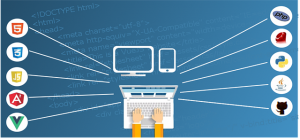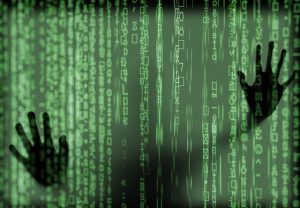The digital world is everywhere and there is little student or teacher can do to avoid engaging in it.

I read about new and amazing ways to engage students through digital medias and watch as other teachers integrate programs and technology flawlessly. Then I decided to start a Masters program in Educational technology in the hopes that my skill set would grow and I would feel more comfortable and able to integrate technology in my own classroom.
Now to back track a bit, I rely heavily on digital technologies because I would at a distance learning school, where students attend part time (Mondays and Tuesdays) and work online for the remainder of the week. My courses are entirely on an online platform, so students can access content, activities and assignments. That all sounds good on paper, but I continue to struggle with integrated digital technology use beyond an online textbook and typed written assignment.

So, when I see other educators using technology in creative ways, or I find a new app or program I always think of how I could use it in my own classroom.
Just when I think I have figured it all out, BAM! Data privacy issues.

Part of me wants to say “Who cares” students have already given access to so much of their personal information through social media platforms and other online things I don’t fully understand.
Then the other more practical and reasonable voice in my head speaks up and tells me that data privacy does matter. Students seem to be so engaged with the digital world, but I can’t assume that they okay with using certain programs and technology just because I think it will fit perfectly into my lesson.

Our school and district make sure that they use programs whose information is stored on Canadian servers. (I think I said that right, but please don’t quote me). Either way – student and teacher’s private information is safe. But there are so many things out there that would be perfect to use for education.
Caines and Glass found that “if students want to participate in standard educational activities, they often have little opportunity for real choice or consent around what data is collected.” And it got me thinking, how often do I give students an opportunity to “opt out” of educational activities? Or even more importantly, how often do I consider the privacy of students’ data before planning a lesson?

So, where does that leave me? First, I could offer students to opt out, but not really honor their decision. (Which I don’t think will work in my favor.) Second, I could give students choice in how they participate in learning. (Which the stubborn part of me does not want to have to make a back up plan. It sounds like more work.) Or third, I could become more educated on data privacy issues, and teach my students to be more aware of why data protection is important and applicable to them.
When students become more educated on how their data is collected and used, they are more able to protect themselves. Their increased digital literacy can only help them in the future.

Caines, A., & Glass, E. (2019, Fall). Education before Regulation: Empowering Students to Question Their Data Privacy. EDUCAUSE Review, 54(4). Retrieved from https://er.educause.edu/articles/2019/10/education-before-regulation-empowering-students-to-question-their-data-privacy
Recent Comments